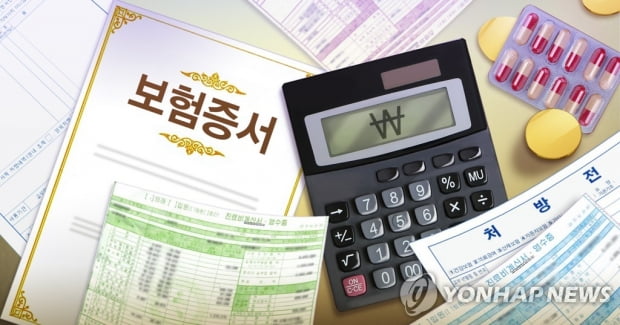Introducing the premium differential system… Increase self-pay rate and cut insurance premiums
Separate wage and non-payment coverage… Re-registration every 5 years
The Financial Services Commission announced on the 18th that it will change the insurance industry’s supervisory regulations ahead of the launch of the 4th generation medical insurance products in July.
This is a follow-up measure to implement the plan to reform real-life insurance, announced by the Financial Services Commission last month.

The biggest feature of 4th generation real-life insurance is the differential system of insurance premiums for non-insurance parts by applying discounts and premiums for insurance premiums as much as they are used like auto insurance.
The current real-life insurance policy has improved the problem that excessive medical use by some subscribers is transferred to the premium burden of most other subscribers.
In particular, for non-payment, excessive medical treatment or excessive medical use is serious, and the use of medical service varies among subscribers.
In the future, insurance premiums will vary in connection with the amount of medical use (insurance earnings) for the non-income portion.
However, it does not apply to’inevitable medical users’ who need continuous and sufficient treatment.
These include those who are subject to special calculations under the National Health Insurance Act (cancer disease, heart disease, rare and intractable disease, etc.) and those who have grades 1 to 2 (dementia, cerebrovascular disease, etc.) among those subject to long-term care under the Long-Term Care Insurance Act.
The application of this non-payment differential system takes place three years after product launch, taking into account the period required for stable discount and premium statistics application.

In the fourth-generation real-life insurance, the self-pay rate increases to prevent excessive medical use.
Current salary 10-20%, non-income 20% to salary 20%, non-income 30%, outpatient deduction is 10,000 to 20,000 won for outpatients, 10,000 won for prescriptions 8,000 won (only 20,000 won for advanced and general hospitals), non-income 3 It is raised to 10,000 won.
Instead, insurance premiums are drastically lowered.
Compared to the new real-life insurance, which was launched in 2017, the premium is about 10% lower than that of the pre-standardized real-life insurance.
Separating wages and non-payments and reducing the re-registration period to 5 years is also different.
Currently, real-life insurance guarantees both pay and non-payment in one insurance product (main contract), but in the future, the pay will be divided into the main contract and the non-payment will be separated and operated as a special contract.
Through this, the insurance company calculates and manages the loss ratio for each of the benefits and non-payments, and the subscribers know whether the premium increase is due to salaries or non-payments, the Financial Services Commission explained.
The shortening of the re-registration cycle is to respond in a timely manner to rapidly changing medical technologies and changes in treatment behavior.
The current real-life insurance coverage can be changed every 15 years, which is the re-registration cycle, making it difficult to respond quickly even if over-treatment becomes a problem.
The Financial Services Commission has a notice period for changes in the insurance industry supervision regulations from 19th to 2nd.
Afterwards, the 4th generation real-life insurance will be released on July 1 after regulatory review by the Regulatory Reform Committee and resolution by the Financial Services Commission.
/yunhap news
